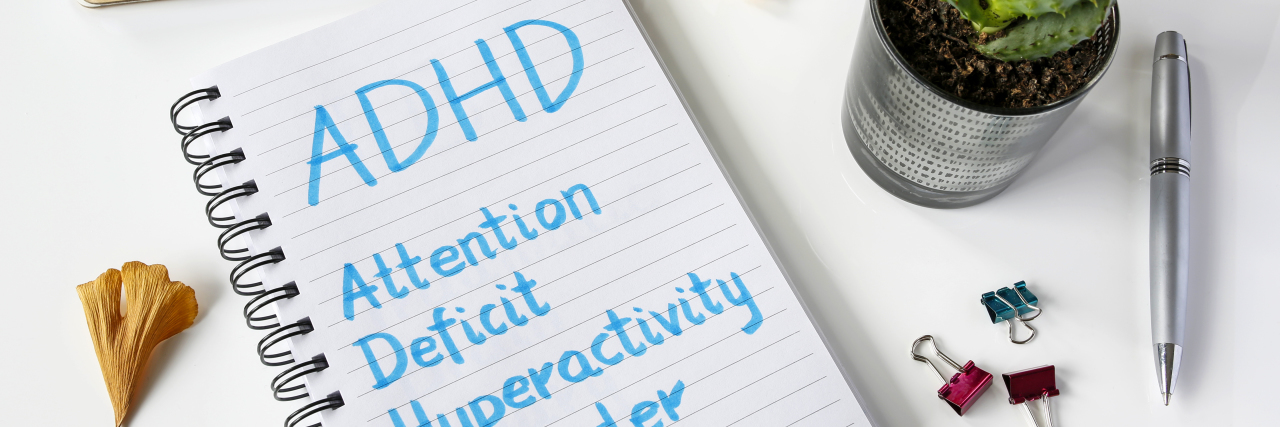AskMe: We Asked an Expert All of Your Questions About ADHD
Attention-deficit/hyperactivity disorder (ADHD) doesn’t just involve being easily distracted and having excess energy — it’s a complex neurological condition that can affect everyday functioning and may even symptomatically interact with comorbid conditions. We spoke with Dr. Ellen B Braaten, Ph.D., an associate professor at Harvard Medical School and Understood Expert on ADHD, and she answered questions from our Mighty community members who live with ADHD or have a loved one with ADHD. Here are expert answers to some of your biggest questions about ADHD.
Other relevant stories:
• ADHD Organization Tools
• What Is ADHD Paralysis?
• Who Prescribes ADHD Meds?
• What is ADHD?
Responses have been lightly edited for clarity.
Q: How do ADHD and PTSD interact with each other? Which symptoms overlap or clash? Any tips for navigating both conditions together?
Braaten: There are a number of symptoms that overlap between ADHD and PTSD, such as feeling restless or distractible and having difficulty concentrating. Problems with memory and feeling cognitively “disorganized” or “brain foggy” might be experienced in both disorders. I wouldn’t say these conditions necessarily “clash” with one another, but there are some clear differences. ADHD is a brain-based disorder that begins early in development, whereas PTSD is a disorder that affects the way the brain functions after a traumatic event.
People with PTSD will often experience flashbacks, frightening dreams, and recurrent memories. They might avoid any people, places, or situations that are associated with their trauma. Therefore, they can have trouble with memory, depression, and may be overly vigilant.
When a person with ADHD also has PTSD, the symptoms from one disorder might exacerbate symptoms in the other. For example, one of the symptoms of ADHD is difficulty “shifting set,” which refers to the ability to move easily from one topic or activity to another. The challenges people with ADHD face might exacerbate the recurrent memories associated with PTSD. They might have even more difficulty “letting things go” than a person with PTSD who doesn’t have ADHD. Similarly … problems with memory and disorganized thinking might be more significant in a person with ADHD who also experienced trauma.
If you have both ADHD and PTSD, treating the symptoms of PTSD through cognitive and cognitive-behavioral therapy approaches may be helpful. Some of the components of therapy – relaxation and stress management skills, cognitive coping skills, emotional regulation skills, and cognitive processing of the trauma – can also be helpful for symptoms of ADHD.
Q: How can a person with ADHD lessen obstinacy and maintain consistency? Is there a certain therapy that helps?
Braaten: Knowing yourself – and thinking of ADHD as something that needs to be embraced as opposed to cured – is an important part of any therapeutic approach. Medication can help symptoms of ADHD, including obstinacy and lack of consistency. Therapy that includes life management skills can also be helpful. Therapy can focus on “thing management,” such as managing papers and personal objects, time management, “to-do management,” such as lists of tasks, and money management. Learning which areas of life present challenges – and finding ways to better manage those challenges – can help people with ADHD become more consistent at home and at work. In addition, exercise and mindfulness meditation can be helpful in managing symptoms of ADHD.
Q: How can a person with ADHD gain confidence?
Braaten: What I said above – knowing yourself and accepting who you are is the best way to gain confidence. Confidence also comes from being successful. It’s important for people with ADHD to find areas in life in which they feel … successful and make those situations a regular part of their lives.
Q: What advice do you have about studying effectively with ADHD?
Braaten: Some of the best techniques include:
• Have a clear idea of what it is you need to study. Know the subject, whether you need to read or write information to study for a test, and know the format of the test.
• Don’t expect to do all your studying in one big chunk. Instead, set a realistic goal for the amount of time you want to focus on a task, and set an alarm for that amount of time. When the alarm goes off, ask yourself whether you have been distracted from the task at hand, and if so, define what was distracting.
• Break large tasks into smaller ones. For instance, making your first goal “Write the English paper” isn’t very helpful. Instead, decide what you can do in a manageable amount of time, such as “Make an outline for the English paper” or even “Pick a topic for the English paper.”
• Keep external environmental distractions, like social media, Internet, and phone, to a minimum.
Q: Do certain ADHD medications affect someone’s personality?
Braaten: ADHD medications should not affect a person’s personality. In fact, correctly prescribed medication should make someone feel “more like themselves,” not “different.” That being said, when the dose is not correct, it may cause someone to feel “flat” and “robotic.”
Q: Is there a relationship between head injury and ADHD?
Braaten: There is some data that shows children who have a serious head injury are more likely to develop ADHD, and those symptoms might not occur for up to a decade later. On the other hand, ADHD is a risk factor for head injuries, at least in childhood. It’s likely that symptoms of impulsivity, inattention, and hyperactivity increase the possibility that a child with ADHD will be more accident-prone.
Thank you to Understood.org for allowing us to speak with Dr. Braaten!
If you’re living with ADHD and want to connect with others with similar experiences, join a community here on The Mighty:
Getty image by Chrupka.

